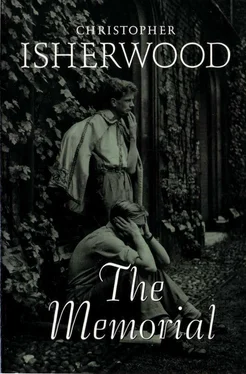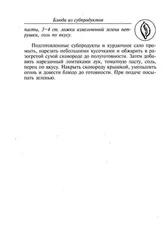Balefanio - tmp0
Здесь есть возможность читать онлайн «Balefanio - tmp0» весь текст электронной книги совершенно бесплатно (целиком полную версию без сокращений). В некоторых случаях можно слушать аудио, скачать через торрент в формате fb2 и присутствует краткое содержание. Жанр: Старинная литература, на английском языке. Описание произведения, (предисловие) а так же отзывы посетителей доступны на портале библиотеки ЛибКат.
- Название:tmp0
- Автор:
- Жанр:
- Год:неизвестен
- ISBN:нет данных
- Рейтинг книги:4 / 5. Голосов: 1
-
Избранное:Добавить в избранное
- Отзывы:
-
Ваша оценка:
- 80
- 1
- 2
- 3
- 4
- 5
tmp0: краткое содержание, описание и аннотация
Предлагаем к чтению аннотацию, описание, краткое содержание или предисловие (зависит от того, что написал сам автор книги «tmp0»). Если вы не нашли необходимую информацию о книге — напишите в комментариях, мы постараемся отыскать её.
tmp0 — читать онлайн бесплатно полную книгу (весь текст) целиком
Ниже представлен текст книги, разбитый по страницам. Система сохранения места последней прочитанной страницы, позволяет с удобством читать онлайн бесплатно книгу «tmp0», без необходимости каждый раз заново искать на чём Вы остановились. Поставьте закладку, и сможете в любой момент перейти на страницу, на которой закончили чтение.
Интервал:
Закладка:
"She's been running splendidly, hasn't she?"
"Not too badly. It's this new juice. We must stick to it."
Their voices were so warm and intimate with love that they might have been talking of a newborn baby. Gerald's old two-seater, which he'd turned over to Tommy when he got the Bentley. And within a week came the smash. The doctor said that if he'd lived he'd have been a cripple. It was impossible to think of Gerald as a cripple. It made Anne shudder. She'd sometimes felt a sort of hatred of his red beefy health. He was strong and stupid like an animal. And like an animal he had been suddenly and stupidly killed, with a pipe in his mouth, travelling at seventy miles an hour. She'd never forget how Tommy had come to her, that afternoon, straight from the hospital. He had seemed quite dazed. He had to keep telling her exactly what had happened.
"You know, Anne," he kept repeating, "at first I didn't recognise him at all. It might have been a stranger."
And through all her horror—strange, remorseless, as it seemed—she'd felt a curious, new joy,
growing up swiftly and secretly in the darkness of her heart. Gerald had done this for her. At last. Within a week of the funeral she'd told Tommy that she loved him.
How queer to think that people could say, almost certainly did say, that she was marrying Tommy for his money. Now they would be rich. Gerald had had everything—Cambridge, holidays at Monte Carlo, money for actresses. And now it would be Tommy's. But all that was merely a joke, so long as Tommy never believed it. And he never shall believe it, Anne promised him.
"Well, here we are."
Edward had opened the garden gates. Swinging on them like an urchin, he waved his hat to Maurice and Tommy as they drove past and round the sundial to the front door. Maurice swerved too sharply, crushing a bit of turf from the corner of the grass with his wheel.
"I'm awfully sorry," he said to Tommy, jumping out. "I've spoilt your lovely lawn."
The others followed stiffly, stretching themselves. Gathered in the shelter of the porch. Edward, having closed the gates, came bounding across the garden towards them.
"How incredible this is," he said to Mary, "I feel as if I'd just arrived for the Christmas holidays."
"Why," asked Pamela, "have you been here before?"
"It was some time ago." Edward grinned.
"Ring the bell, Tommy," said Maurice.
Tommy rather solemnly advanced and rang the bell. They waited. Now that the engines of the cars were stopped, there was a deathly silence. You could hear the trees dripping in the park.
"No one at home," said Edward.
"It's awfully early," said Maurice, as though apologising to some one. Curiously enough, none of them had fully realised this. They looked at each other guiltily.
"I don't suppose anybody's up yet," said Margaret.
"Hadn't we better clear off for a bit?"
"Let's go and knock them up at the Station Inn," suggested Mary.
But Tommy, with a decision which reminded them that he was junior master of the house, merely pressed the bell again. They waited. It was cold.
"Is there any of that beer left?" asked Edward. Mary shook her head. Earle, who'd stayed in the dickey, now climbed out, cautiously, being careful not to disturb Georges, who was sound asleep again.
"What I like," said Edward, grinning with pure glee, "is that you can't hear the bell ring. It's such a long way off. Do you know," he added, turning to Earle, "the bell rings at least a quarter of a mile from here?"
"Is that so?" said Earle politely. "Don't you believe him, my dear," said Margaret. "He's only taking advantage of your innocence."
"I expect it's out of order," said Tommy.
"You'd much better leave them alone till breakfast-time," Mary said.
But Tommy sternly shook his head. His honour as host was, it seemed, at stake. Mary felt sorry for him. It was really no fault of his, for he'd never suggested this mad expedition. That, naturally, had been Maurice's idea, inspired by Edward. And last night it had certainly seemed amusing to pack into the cars and go racing off through the suburbs, mildly drunk, shouting and singing. One always forgets that car drives take such a long time. Like that awful occasion when Edward had persuaded them to set off at a few minutes' notice for Penzance. They'd ended up in an hotel at Bournemouth, where the food was beneath criticism.
Tommy knocked heavily with the iron knocker. They could hear the hollow echo of the knocking inside the house. No answer.
"This building must be tremendously old," said Earle, in his polite, formal way—so that they all laughed.
"Come away, Tommy," said Anne, laughing.
Tommy, with a smile, knocked four times. A dog began barking somewhere inside.
"Something's begun to materialise," said Edward.
"It's the cry of a haound, Watson!" Maurice did one of his stock impersonations. Edward pulled a dreadful face. A bolt inside the door went off like a pistol-shot, making them all jump. They hadn't heard footsteps. The door opened five or six inches on the chain. It was Mrs. Compstall, the housekeeper, who'd been taken over temporarily with her husband from Eric when Ramsbotham bought the house. She had her head in a shawl. She didn't for a moment recognise Tommy.
"What is it?" she asked, her face a blend of aggressiveness and alarm.
"May we come in, Mrs. Compstall?"—Tommy was quite humble now. "I'm afraid it's rather early.''
She opened the door with a bad grace, muttering an apology, of which was audible only:— "... of course, if we'd been let know. . . ."
They trooped in, a little awkward. Edward recovered first. As the lights were switched on he looked round and exclaimed:
"Welcome to the Hall!"
Mary caught the look of open dislike with which Mrs. Compstall eyed him. And no wonder. She naturally regarded this surprise visit as an attempt to find her out, to catch her red-handed in some sort of unlawful enterprise—baby-farming or a secret distillery. They all stood round, stale-looking in their motoring things, eyeing the
dismantled hall. The daylight paled the lamps. The lamps made the daylight ghastly. The whole house felt damp and draughty and freezingly cold. The furniture looked at that hour like ugly, dirty lumber. Catching sight of herself in a mirror, Mary thought: Oh, God! it's not half so dirty as my face.
Pamela came into the hall with a shiver and a timid grin. Could she be the same girl who, nine hours earlier, had put her head on Edward's shoulder? She was a 'cello student at the Royal College.
"Can we have something to eat, please, Mrs. Compstall?" said Tommy, who seemed determined to see this visit through in the right style.
This was almost too much for Mrs. Compstall. She snapped:
"There's nothing in the house."
"We can go and get something in the car," said Maurice, who perhaps thought that he would thus ingratiate himself, "if you'll tell us what to buy."
Again Mrs. Compstall was reduced to muttering;
". . . couldn't undertake ..."
Tommy surprised them. He was really annoyed. He said:
"In that case, we'd better go."
There was such unmistakable menace in his tone that Mrs. Compstall admitted:
"There's eggs. And you could have coffee, if that would be sufficient."
"That'll be splendid," said Edward.
But Tommy turned to Mary, Pamela and Margaret:
"Will that be enough for you?" He seemed almost to be asking them to say that it wouldn't. They assured him that it would. Mrs. Compstall was looking round, counting the party. At this moment Georges appeared in the doorway, sleek and composed, trailing a muffler along the ground behind him, with his "Aha!" of satisfaction. Mrs. Compstall looked quite alarmed. She asked, in a frankly cowed voice, if they would have their breakfast in the smoking-room. She would be as quick as she could. She hurried away.
Читать дальшеИнтервал:
Закладка:
Похожие книги на «tmp0»
Представляем Вашему вниманию похожие книги на «tmp0» списком для выбора. Мы отобрали схожую по названию и смыслу литературу в надежде предоставить читателям больше вариантов отыскать новые, интересные, ещё непрочитанные произведения.
Обсуждение, отзывы о книге «tmp0» и просто собственные мнения читателей. Оставьте ваши комментарии, напишите, что Вы думаете о произведении, его смысле или главных героях. Укажите что конкретно понравилось, а что нет, и почему Вы так считаете.





